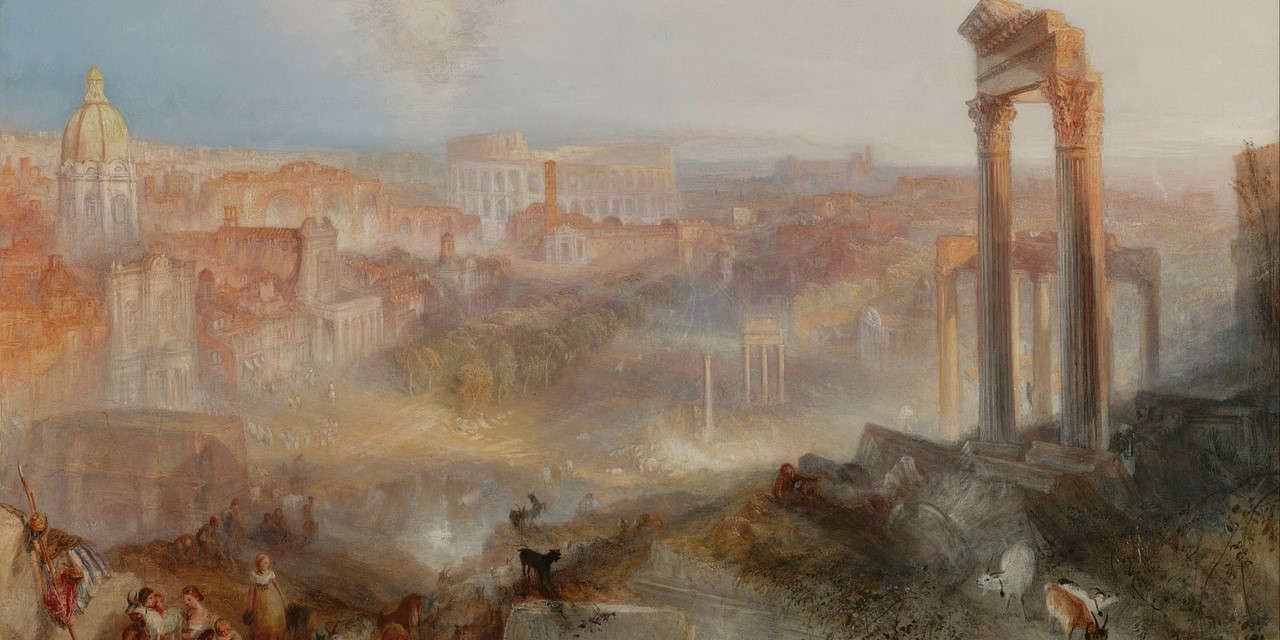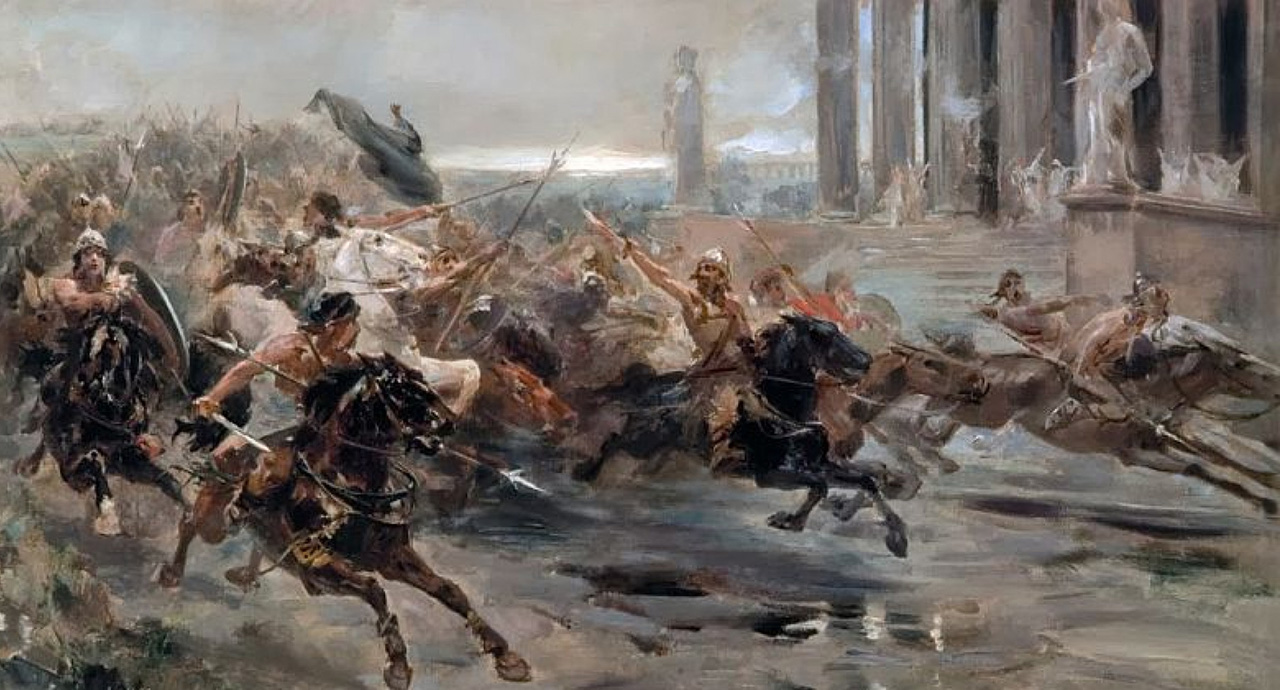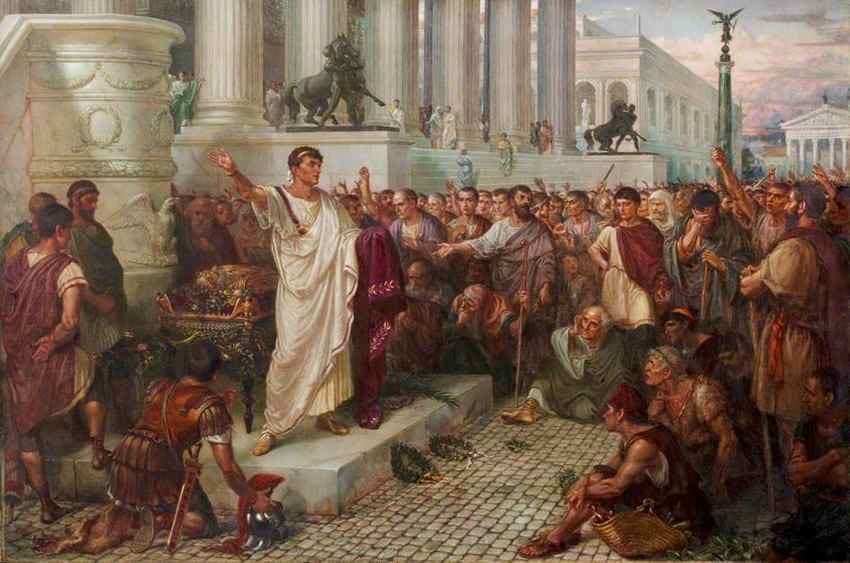The Roman Empire, a colossal entity in ancient history, encountered numerous economic difficulties that played a pivotal role in its eventual downfall. These challenges were multifaceted, encompassing issues like inflation, currency devaluation, and a declining trade network, which collectively undermined the empire’s economic foundation.
Instability of Roman Currency

A core issue was the instability of the Roman currency. The empire’s inability to stabilize its currency led to rampant inflation and devaluation. This devaluation not only eroded the purchasing power of its citizens, making daily necessities increasingly unaffordable, but also shook the confidence of foreign traders. As a result, trade, a lifeline of the empire’s economy, diminished significantly.
Military Expenditure and Economic Woes

The Impact of Inflation and Devaluation
Inflation and currency devaluation had severe repercussions. The constant decrease in the currency’s value led to skyrocketing prices for goods and services, severely impacting the average Roman citizen. Foreign merchants, losing faith in the Roman currency, pulled back from trading, causing a slump in economic activity. This decline in trade, compounded by rising prices, negatively affected agricultural productivity, placing further strain on the empire’s economy.
Military Challenges and Barbarian Invasions

Decline of Roman Military Might
The Roman Empire’s military, once the cornerstone of its power, experienced a notable decline. Factors like corruption, incompetence, and resource scarcity plagued the military. The empire, stretched thin over vast territories, found it increasingly challenging to defend its borders against persistent barbarian invasions.
The Onslaught of Barbarian Tribes

Barbarian tribes, including the Visigoths and Vandals, capitalized on the empire’s vulnerabilities. The Roman military, hampered by a lack of cohesive strategies and internal corruption, struggled to repel these invasions. These relentless attacks culminated in significant defeats, such as the sacking of Rome in 410 AD, signaling the empire’s waning power.
The Fall of the Western Roman Empire
The eventual deposition of Romulus Augustus in 476 AD marked the fall of the Western Roman Empire. This collapse was not abrupt but rather the result of an accumulation of challenges, including political turmoil, economic hardships, and military defeats. The Western Roman Empire’s disintegration marked a pivotal moment in history, leading to the emergence of new powers and the transition into the medieval period.
Political Instability and Division
The Empire’s Internal Strife
Political turmoil significantly contributed to the empire’s downfall. The Roman Empire endured civil wars and frequent leadership changes, especially during the “crisis of the third century.” These upheavals weakened the central authority and eroded public trust in the government.
The Tetrarchy and Division
Emperor Diocletian’s reform, known as the Tetrarchy, divided the empire into Western and Eastern regions, each under separate rule. While intended to streamline governance, this division eventually led to disparate identities and priorities, weakening the empire’s unity and exacerbating its decline.

Social Factors Undermining the Roman Empire
The Role of Slavery and Social Inequality
Slavery was deeply ingrained in Roman society, leading to pronounced disparities between the wealthy elite and the lower classes. This division fostered social unrest and weakened the empire’s cohesion. The exploitation of slaves by the elite exacerbated these tensions, further destabilizing the societal structure.
Urban Decay and the Migration to Rural Areas
The empire’s cities, once symbols of Roman might, faced neglect and deterioration. This urban decay, coupled with inadequate infrastructure and public services, spurred a migration to rural areas. Additionally, factors like warfare, epidemics, and declining birth rates contributed to a significant reduction in the urban population, accelerating the decline of these once-thriving centers.
Cultural Shifts During the Empire’s Decline
Erosion of Traditional Roman Values
A notable cultural shift occurred in the empire’s later years, moving away from traditional Roman virtues like discipline and civic duty towards a pursuit of personal pleasures. This change weakened the social fabric and eroded the sense of collective responsibility that had once bolstered the empire.
The Rise and Influence of Christianity
Christianity’s spread throughout the empire profoundly impacted Roman culture. As it became the official religion, Christianity challenged and gradually supplanted traditional Roman beliefs and practices. This religious transformation played a role in reshaping societal values and norms, contributing to the empire’s cultural and ideological evolution.
The Enduring Legacy of the Roman Empire’s Fall

Historical and Global Impact
The fall of the Roman Empire marked a significant turning point in world history. It led to a period of upheaval, known as the Dark Ages, and set the stage for the emergence of new powers, like the Byzantine Empire. The collapse also facilitated the spread and establishment of Christianity as a dominant force in Europe.
Lessons from Rome’s Demise
The empire’s downfall offers critical lessons in governance, defense, and economics. It underscores the importance of capable leadership, the necessity of a strong military for border defense, and the need for sound economic policies. The Roman experience serves as a reminder of the potential vulnerabilities even in the most powerful of civilizations.